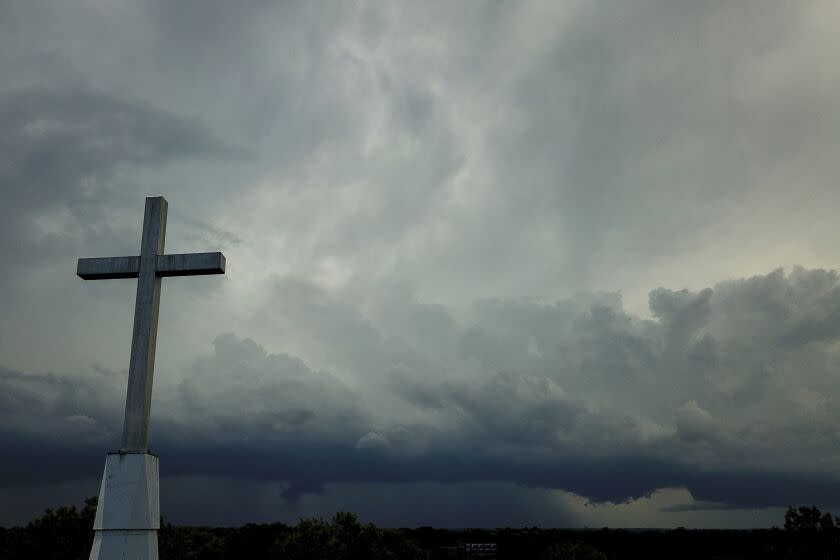Letters to the Editor: You pray to God about climate change. That's no excuse for inaction

- Oops!Something went wrong.Please try again later.
To the editor: The survey describing the difference between religious and nonreligious individuals concerning climate change made me reflect on folks I've met who have brought every small need to God. There is of course a certain comfort from this, but how disempowering that world view is!
There is an old rabbinic teaching that imagines God showing Adam around the Garden of Eden, and saying to this first human: "See My creations, how beautiful and exemplary they are. Everything I created, I created for you. Make certain that you do not ruin and destroy My world. Because if you destroy it, there will be no one to mend it after you."
The power to preserve or destroy was seemingly put into human hands from the outset.
Rabbi Abraham Isaac Kook, first rabbi of British Mandate Palestine, had a radical notion concerning faith. He once told his students that there are times when we should behave like atheists. He advised not to ask God for help if they see people in distress. Pretend there is no God and act.
So, to religious Americans: While you're praying for the hungry, donate to a food bank. While you're praying for the unhoused, advocate for solutions. While you're praying for children afraid to go to school, advocate for stricter gun laws.
And while you're praying for the planet, recycle, re-use, save water and eschew plastic. Act as though this is the only planet we have.
Rabbi Diane Cohen, Reseda
..
To the editor: You recently had an article on the Taliban, using its distorted view of Islam, treating half the population of Afghanistan as essentially valued only for reproduction.
There was another article about religion in America and how those who claim to be the most religious care the least about the harm they cause.
I'm beginning to think religion is a bad thing.
If your religion tells you causing harm is bad, but they are not telling you to stop using gasoline to power your car, then what good are they? Buying and burning gasoline is literally the most harmful thing most Americans do in their entire lives.
You used to not have a choice, but today you do.
Paul Scott, Santa Monica
This story originally appeared in Los Angeles Times.

